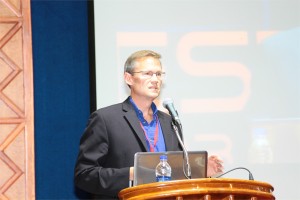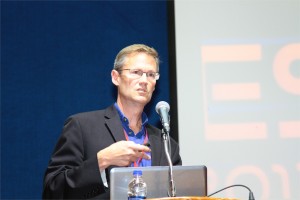 Pradip K. Bhatnagar, Ph.D.
Pradip K. Bhatnagar, Ph.D.
Former President & Head, Daiichi Sankyo Life Science Research Centre, India
Strategies for Diseases/Target Selection for Drug Discovery and a Multi-Targeted Approach to Metabolic Disorder
Drug discovery and development is a high risk and expensive undertaking. Although, technologies, such as, bioinformatics, genomics, high throughput screening and computer-aided design have helped identify targets, biomarkers, lead candidates and reduced the time required for advancing an idea from bench to clinic, but it still takes 10-12 years and costs approximately one billion dollars to bring a drug to market globally. Therefore, it is imperative that the strategies to reduce the risk and increase efficiency are carefully selected. In this presentation I would discuss strategies for selecting potential diseases, targets and provide an example of multi-targeted approach to metabolic disorder.
 Terry Hermiston, Ph.D.
Terry Hermiston, Ph.D.
Vice President, US Biologics Research Site Head, US Innovation Center Bayer Healthcare, USA
ColoAd1 – An oncolytic adenovirus derived by directed evolution
Attempts at developing oncolytic viruses have been primarily based on rational design. However, this approach has been met with limited success. An alternative approach employs directed evolution as a means of producing highly selective and potent anticancer viruses. In this method, viruses are grown under conditions that enrich and maximize viral diversity and then passaged under conditions meant to mimic those encountered in the human cancer microenvironment. Using the “Directed Evolution” methodology, we have generated ColoAd1, a novel chimeric oncolytic adenovirus. In vitro, this virus demonstrated a >2 log increase in both potency and selectivity when compared to ONYX-015 on colon cancer cells. These results were further supported by in vivo and ex vivo studies. Importantly, these results have validated this methodology as a new general approach for deriving clinically-relevant, highly potent anti-cancer virotherapies. This virus is currently in clinical trials as a novel treatment for cancer.


